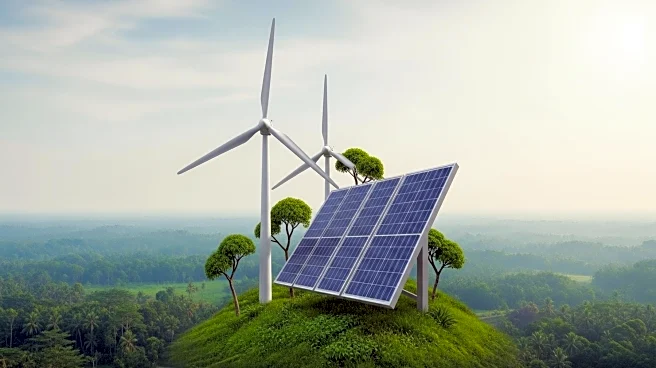What is the story about?
What's Happening?
Indonesia is at the center of a supply struggle between the US and China as it transitions from coal to clean energy. Chinese companies have invested heavily in Indonesia's clean-energy supply chain, including solar and electric vehicles, while the US promotes liquefied natural gas. The Just Energy Transition Partnership, aimed at helping Indonesia shift away from coal, has faltered, with only a fraction of the funds disbursed. The US withdrawal from the partnership impacted political leadership, while China continues to embed itself in Indonesia's energy sector.
Why It's Important?
The competition between the US and China in Indonesia's energy sector highlights differing visions for the future of energy in the developing world. China's investments promise jobs and cleaner power, while the US path risks deeper fossil fuel dependence. The struggle affects Indonesia's ability to transition to clean energy and impacts global climate goals. The outcome will influence which superpower sets the terms for the next generation of energy in the developing world.
What's Next?
Indonesia's reliance on coal remains strong, with new coal plants proposed despite global trends towards renewable energy. The country risks falling behind in the clean energy transition and missing out on investment opportunities. The US and China will continue to vie for influence, shaping Indonesia's energy future and impacting regional energy security.
Beyond the Headlines
Chinese investments in Indonesia often come with high environmental costs, such as pollution from nickel mining. The US promotes LNG as a cleaner alternative to coal, but long-term deals could entrench fossil fuel dependence. Indonesia's energy transition is crucial for its economic growth and environmental sustainability.















